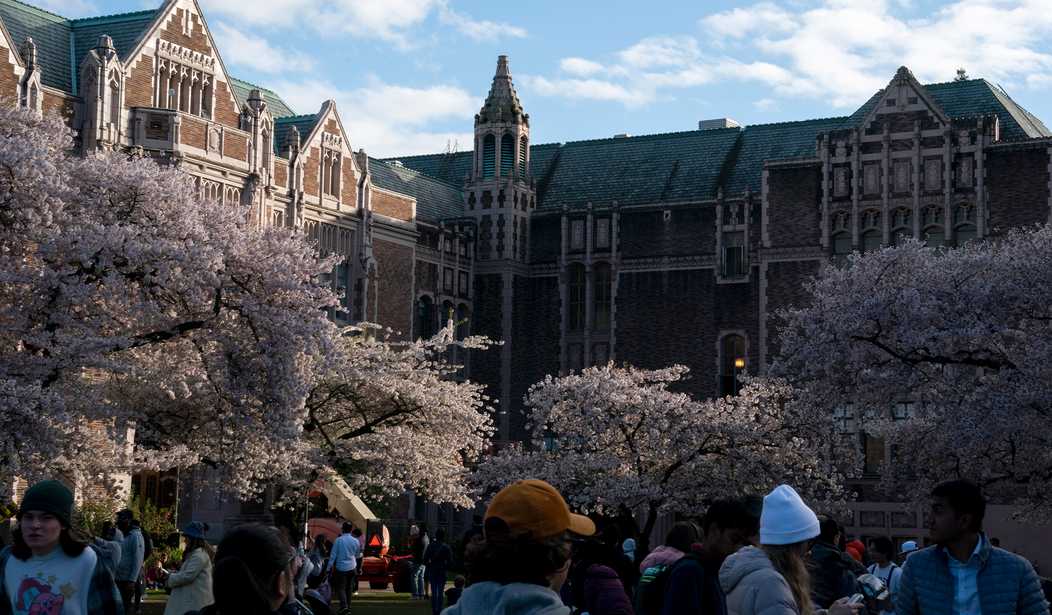Growing up, you're practically frightened into going to college. Everyone from your family members to your teachers and school counselors spoke as if a life without a college degree was out of the question. Every decision you make in both middle school and high school was just work to pave your way to higher education.
My generation believed the hype and aimed to graduate with a degree... only to find out too often they were expensive pieces of paper that didn't really guarantee you a job. Many in my generation were saddled with debt that was hard to pay off due to a 2008 market crash, leaving few career options.
The promise that playing the game would wind up with rewards from the system ended up being a lie, and millennials possess debt to this day, even though many are now in their late 30s and early 40s. Millennials were playing by 1975 rules in a 2010 playing field.
Now Gen Z is up to bat, and they watched their older siblings struggle at the plate, and are choosing — not to swing differently — but not to play the University game at all.
As Fortune reported, Gen Z is abandoning the college and becoming NEENTs, or "no longer in education, employment, or training," but before we ascribe this to being lazy, we should probably look at the cause creating this effect:
On the other hand, millions of students graduate each year with degrees with a less clear career path, leaving young adults underemployed and struggling to make ends meet. And while the long-term future may be bright—with an average return on investment for a college degree being 681% over 40 years, plus promises of Great Wealth Transfer—it may be coming too late for students left with ballooning student loans in an uncertain job market.
Too much time has been focused on promoting a four-year degree as the only reliable route, despite the payoff being more uneven and uncertain, says Bulanda. Other pathways, like skilled trade professionals, should be a larger share of the conversation.
“It’s critical that young people are empowered to be informed consumers about their education, equipped with the information they need to weigh the cost, quality, and long-term value of every path available to them,” Bulanda says.
In a way, Gen Z can't be blamed for walking away when looking at the numbers. Since the 1980s, higher education costs have risen 1,200 percent, and trades have now begun outpacing white collar jobs in pay.
Moreover, Gen Z now lives in an era that both helps and destroys in terms of technology. "YouTube educations" are becoming more and more common, with the platform featuring everything you could ever want to know, including full educational material seen in top-tier universities. If you want to learn how to do something, then TikTok is also a popular place to go.
According to the NSC Research Center, online certifications have skyrocketed nearly 30 percent since 2019.
Then, of course, there's the rise of artificial intelligence, which is swiftly becoming the fastest way to learn anything. With a few keystrokes, you can have an AI code an entire website for you.
Universities don't hold the same value they used to, with very few professions truly requiring real hands-on learning, such as the healthcare industry. Gen Z possesses a mentality of "learn fast, earn fast," which means distancing itself from the outdated models of education.
Naturally, this change is coming with drawbacks. There is a skill gap, as reported by Fortune. These would naturally develop as career paths become muddier thanks to the ever-changing technological landscape, as well as the lack of drive to pursue a career that often comes with higher learning.
But like many things in this ever-changing job market, we may just be seeing the birthing pains of a new way of conducting business. A world where the gig economy is the more popular path, as the system becomes unable to guarantee stable employment over a long period of time.
That's not to say credentialed careers are going to completely disappear, but the market is shrinking for these jobs.
This may very well be temporary as well. With President Donald Trump coming down on Universities for effectively being useless activist factories and bringing many universities into a sort of "Hillsdale" situation, costs may come down and education may become more focused... if the deprivation of government funds holds. Moreover, once AI becomes far more established in our society, we may very well see what the job market looks like when the smoke clears, putting a bit more confidence in what's still stable afterward.
But as it stands, the university system is increasingly useless and increasingly contributes little to the overall job market. Perhaps Gen Alpha will have a much better relationship with it if things keep going the way they are and colleges are forced to adapt, but until then, it's not worth the time and money for too many.















